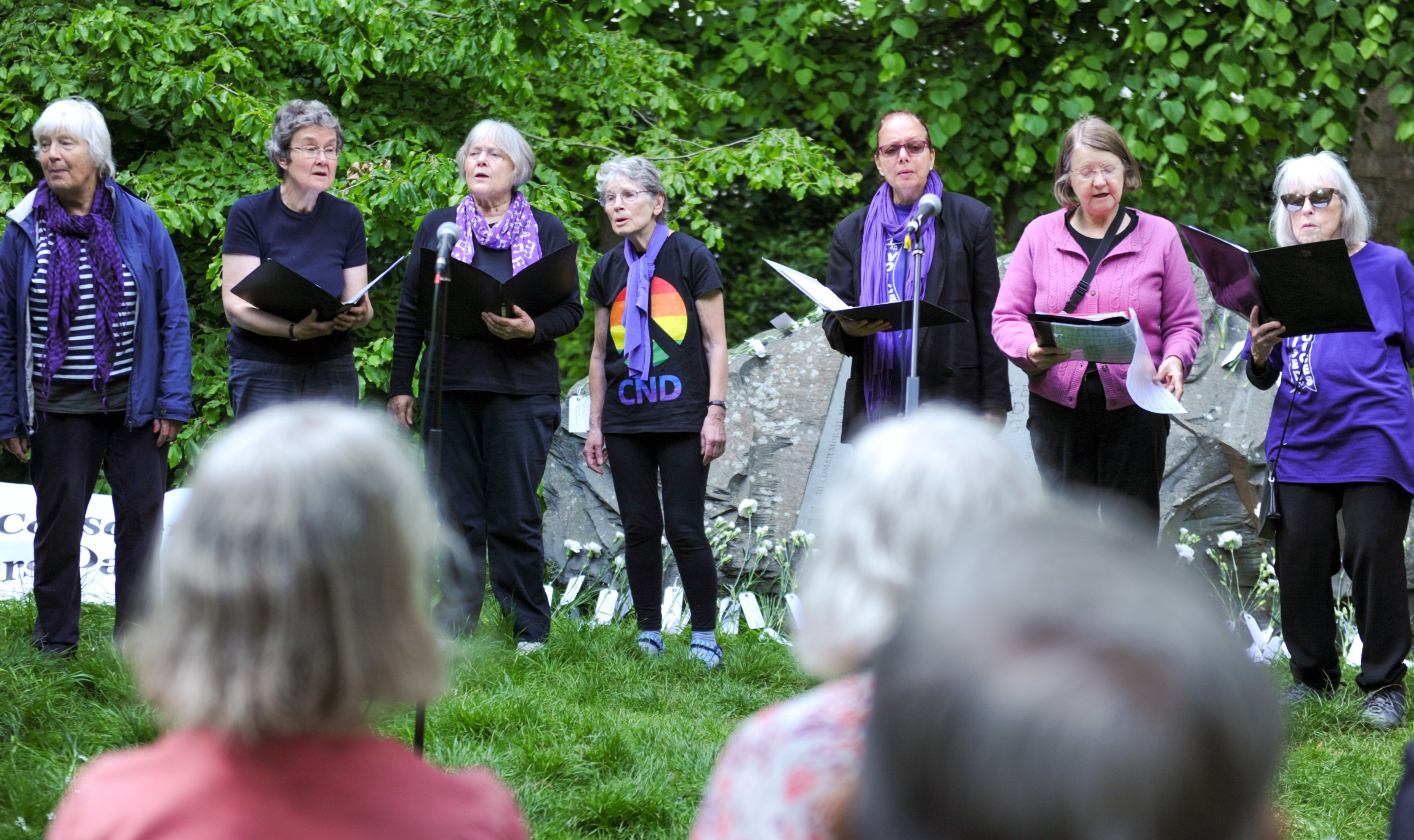Poignant ceremony marks International Conscientious Objectors’ Day
Quakers and others marked International Conscientious Objectors' Day on 15 May at the annual ceremony of remembrance in Tavistock Square.

This year's commemoration was especially poignant, given increasing threats to the international recognition of the right to refuse to kill, thanks to the ongoing conflicts in Gaza and Ukraine.
The livestreamed event included songs and the names of 85 conscientious objectors, representing each country where people have made a stand.
[QUOTE-START]
Peace is an option
- Sofia Orr, Israeli conscientious objector
[QUOTE-END]
Semih Sapmaz from War Resisters' International, spoke the words of Sofia Orr, 18-year-old Israeli conscientious objector, who said: “I refuse because there is no military solution to a political problem.
“I also decided to refuse in a very public way, hoping to reach Israeli society, especially young people, to show them that refusal is an option; peace is an option."
Israeli conscientious objector Or told the crowd of over 100: “I'm not a hero and I don't believe in heroes. To me, that's a militaristic concept."
Conscientious objection is recognised as an essential component of the right to freedom of thought, conscience, and religion.
This right is guaranteed by the International Covenant on Civil and Political Rights and the UN Universal Declaration of Human Rights.
But there is no recognition of the right to conscientious objection for men in Israel, and an incomplete recognition for women.
And while Ukraine and Russia are both party to those agreements, the right to conscientious objection remains precarious.
Quakers have objected to war and armed service on grounds of conscience for centuries, fighting in 1916 for the right to conscientious objection in law.
Quakers in Britain challenge the promotion of war and violence and instead champion education rooted in peace and justice, which includes developing Peace Education resources.
These include free lessons from the new Teach Peace Secondary pack, 'Conscientious Objection' and 'Unknown Ravens', which explore refusal to fight in World Wars I and II.